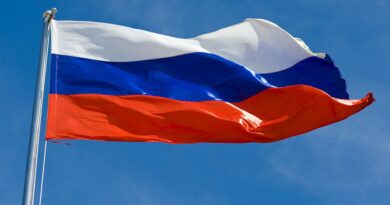Ukraine: No-fly Zone Proposal Rejected by Americans

Today, the dangers of military escalation are beyond description.
What is now happening in Ukraine has serious geopolitical implications. It could lead us into a World War III Scenario.
It is important that a peace process be initiated with a view to preventing escalation.
Global Research does not support Russia’s invasion of Ukraine.
The history of this war must be understood.
The bombing and shelling led by Ukraine’s Armed Forces directed against the people of Donbass started eight years ago, resulting in the destruction of residential areas and more than 10,000 civilian casualties.
A bilateral Peace Agreement is required.
One of the most debated topics in recent days, related to the conflict in Ukraine, is the “no-fly zone” issue. The measure was initially proposed by Kiev to establish an aggressive response to Russia, but it has been treated with some resistance by NATO itself, although it receives absolute approval from the western media. In practice, the creation of such a zone only means giving Kiev and the West the “right” to shoot down Russian planes and helicopters, which would mean the beginning of a new world war. These factors make the measure irresponsible and unnecessary, but the hegemonic media continues to ignore this and point to the idea as the correct path to follow. On the other hand, recent polls indicate that the project is not popular, receiving strong disapproval among ordinary people.
From the beginning, the US government and NATO have rejected the Ukrainian project to create a no-fly zone in order to allow the shooting of Russian planes. This kind of escalation sounds too aggressive even for Western governments, which fear that the conflict in Ukraine will trigger a world war – which would harm all sides without distinction. The position is not shared by the main media agencies, which insist that the creation of the zone is an urgent and necessary measure, despite all the risks it entails. And, in this sense, one of the main arguments of such agencies is to claim that there is a strong popular support for the measure.
In fact, in major polls, when asked whether or not they support the formation of a no-fly zone in Ukraine, most Americans have answered “yes.” But a curious fact has been revealed in a more recent survey by YouGov: most people just do not seem to know what a no-fly zone means in practice. In this survey, YouGov agents asked people two questions. In the first, they simply asked, “Would you support or oppose the U.S. enforcing a no-fly zone over Ukraine?”. And in the second, they asked more broadly: “Would you support or oppose the U.S. enforcing a no-fly zone over Ukraine, which would mean the U.S. military would shoot down Russian military planes flying over Ukraine, possibly triggering a war between the U.S. and Russia?”
For anyone who knows what a no-fly zone means, these questions mean absolutely the same thing. But, surprisingly, there was a discrepancy in results. For the first question, 40% of respondents stated that they would support a US-enforced no-fly zone, while only 25% opposed it and another 35% responded that they were unsure about the topic. On the other hand, for the second question, 23% of respondents said they would support such a zone. 43% percent opposed it, with 34% unsure.
The result brings us a series of interesting reflections. First of all, it is possible to conclude that popular support for the creation of the no-fly zone is a big farce. What happens is that public opinion, influenced by Western media’s discourse, tends to support the existence of anti-Russian measures. And from the moment that the media agencies say that it is necessary to create a no-fly zone, people tend to automatically agree. But, in the opposite direction, American citizens fear the emergence of a new conflict, which is natural for a people as accustomed to wars as the American, who have been suffering the consequences of Washington’s interventionist policy for decades. When they become aware that a no-fly zone would be the trigger for a new conflict, Americans stop supporting the measure, because nothing can seem worse to an American than war.
When Western media agencies claim that there is popular support for the creation of the no-fly zone, they are simply lying irresponsibly, trying to pressure the government to implement a bellicose measure, which will possibly generate a world war, based on a fallacious argument that has been “confirmed” with biased and flawed surveys. Indeed, there is no real support from the American people for any step that could culminate in a war.
It is necessary that the entire population of western countries be aware that “no-fly zone” means an air space of prohibited or restricted flights by the local State, with the right – and sometimes the obligation – for local forces to shoot down aircraft that fly over there. Creating such a situation in a scenario of conflict in the Russian strategic environment means making NATO shoot down Russian military aircraft, which will certainly not be passively accepted, generating a war between Russia and NATO.
So, with people knowing all the consequences of such a zone, there will be no support for this type of irresponsible measure. It is a project that only pleases the Ukrainian government itself and other states with a high degree of anti-Russian nationalism – such as Lithuania, Estonia and Slovenia, which are officially supporting the zone. There is no room to defend this kind of idea in the US and Western democracies.
*
Note to readers: Please click the share buttons above or below. Follow us on Instagram, @globalresearch_crg and Twitter at @crglobalization. Feel free to repost and share widely Global Research articles.
Lucas Leiroz is a researcher in Social Science sat the Rural Federal University of Rio de Janeiro; geopolitical consultant.
Featured image is from Yves Engler


